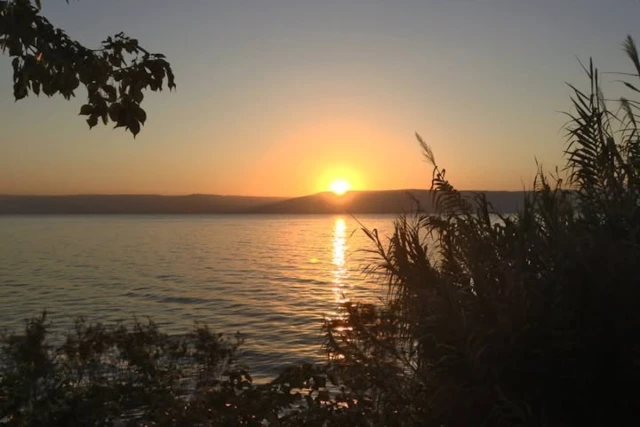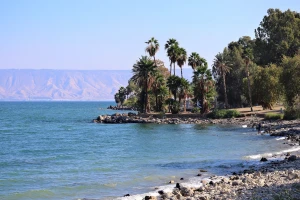'Supplying knowledge can lead to a better world': Israel’s water chief on desalination and saving the Sea of Galilee

Israel’s strides in water desalination continue to draw global attention. In a recent conversation with Christian journalist Paul Calvert, Yechezkel Lifshitz, director-general of the Israel Water Authority, highlighted the advances that the nation has made in protecting its most precious natural resource. At the center of the discussion is the ambitious project of pumping desalinated water from the Mediterranean Sea into the Sea of Galilee (the Kinneret), Israel’s largest freshwater lake.
Lifshitz explained that this initiative is unprecedented globally, describing it as “the first project in the world of pumping water, actually desalinated water, back into nature.” It represents a significant change in Israel’s approach, which previously relied on nature to provide water. Desalination already provides about 70% of the nation’s domestic water supply, and Israel continues to expand capacity to keep up with its growing population and decreasing rainfall.
The urgency of the project became clear after a historically dry season. Lifshitz noted, “The winter between the years 2024 and 2025 is considered to be the worst winter in Israel ever in the last 100 years. We're not saying it just as a phrase. We have data, we have information… because of that, the sea level in the Sea of Galilee went down sharply.”
With natural levels falling, desalinated water is now being pumped 75 kilometers (about 46 miles) inland to stabilize the Kinneret.
Lifshitz told Calvert that the scale of the project was both costly and immense. Although the infrastructure was built between 2018 and 2022, it only recently became necessary to activate it, after several strong winter seasons kept the Kinneret at comfortable levels.
According to Lifshitz, the Water Authority is now drafting a long-term strategic plan through 2075 to ensure Israel's water supply remains secure even amid climate-driven instability.
Despite the shift toward desalination, Lifshitz emphasized that water quality remains high, noting that the difference between natural and desalinated sources is virtually undetectable to consumers.
Israel is happy to share its expertise beyond its borders, and these technologies are increasingly sought by nations struggling with water scarcity. During the interview, Lifshitz pointed to numerous Israeli companies that are pioneering innovative technologies for water conservation, sewage treatment, leak detection, and other niche areas.
He explained that water experts from around the world regularly visit Israel to learn from their model, and Lifshitz believes sharing this knowledge fulfills a much bigger calling. As he put it, “Supplying knowledge in order to bring water to everyone can lead to a better world.”
For an insightful discussion on how Israel’s leadership in water innovation is shaping the future, click below to listen to Paul Calvert’s full interview with Yechezkel Lifshitz of the Israel Water Authority.
Want to help more people find our reporting from Israel? Leave a quick Google review of our website here.

The All Israel News Staff is a team of journalists in Israel.
You might also like to read this:











